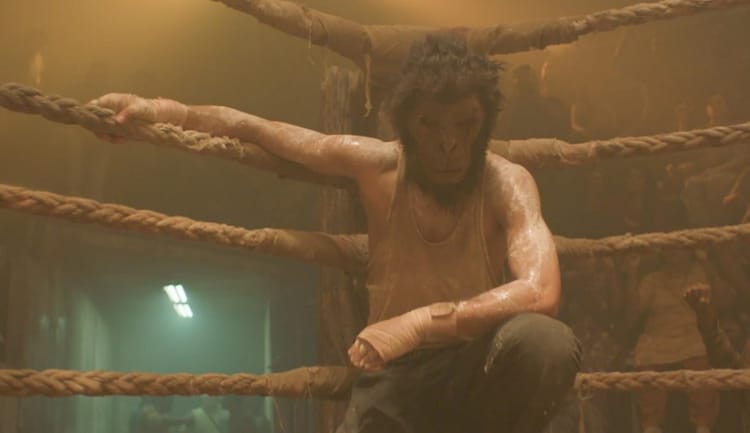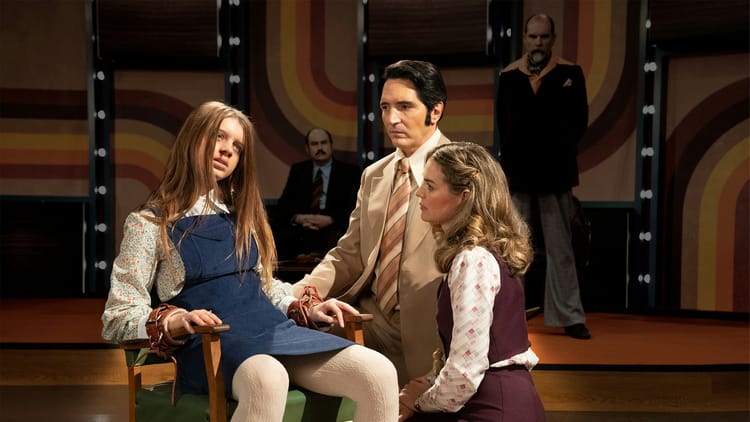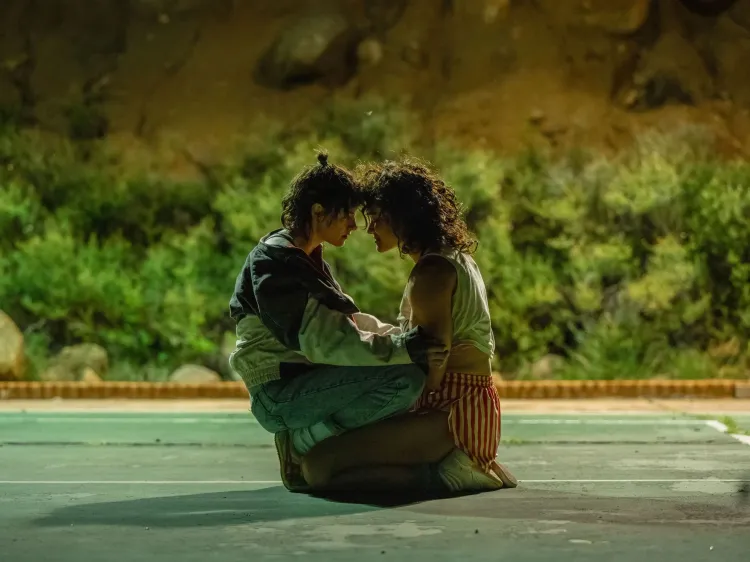Monos
William Golding's Lord of the Flies has become almost a fable in public memory, a timeless warning about the depravity and violence of boyhood when left unchecked. Monos, the latest film from writer-director Alejandro Landes, pulls from Golding's iconic story and brings the pig's head to the Colombian wilderness. But Landes does not simply adapt or relocate, he twists the source material to create a tense and alarming piece of cinema.
Monos follows a group of teenage rebel commandos, simultaneously in training and at war, isolated from the rest of their allies as they protect a critical hostage from government forces. On the surface, this could be another blustering war movie. But that description fails to capture the tenderness or the mania Landes puts on screen as these teenagers descend, or evolve, to survive the war and each other.
This isn't a war movie. It's a movie of survival, with a war deep in the backdrop. It is easy to forget that the teenagers are part of a larger fighting force, something that comes into sharp focus when they meet their adult counterparts. Because for the most part, though they are ostensibly child soldiers, Landes is more interested in the fact that they are unsupervised teenagers, anxious for sex and power.
But unlike the ordinary teenage drama, Monos does not take place in a high school. Instead, the teenagers are protecting a cow on a mountaintop, cutting through jungles, or playing chicken in a rushing river. Every setting in this film is jaw-droppingly gorgeous, almost mythic in their size and scale. And as the teenagers move from locale to locale, their surroundings reflect their descent, as their once child-like exuberance morphs into a persistent paranoia.
This transformation is excellently brought out by this ensemble cast, who make this transition believable and unnerving. Each character's evolution is made real by these actors, with subtle choices like a soft glance or a quick embrace. Because between the sadism and the recklessness, there is a deep well of vulnerability in each performance, in eyes pooling with tears or a tender kiss. Just when you begin to think they have gone too far, Landes reminds us that they are children, who are playing at war amidst actual death. This contrast is anchored by Sofia Buenaventura and Moises Arias, playing characters in direct opposition. Where Arias is manic and frenzied, Buenaventura is still and soft. The balancing act between them pulls us deeper and deeper into this world, as redemption recedes into the distance.
Landes cast this movie with a training camp, similar to the scenario we first find the teenagers in. As the camp continued, the group winnowed down until there were only eight left. These eight became the ensemble for Monos, the cult of commandos abandoned by the mountaintop. This energy carries over into each of their performances, not just in the desperation in their eyes, but in the connections between them. But as their invented rituals grow increasingly more violent and twisted, we see this camaraderie crumble. Friends become enemies, enemies become lovers, traitors grow loyal, and followers lead the pack. In the hands of a different filmmaker, we would look on with judgement and scorn. But instead in Monos, we view them with sympathy. We understand them, even with their violence, because we are in the fray with them. The camera does not look on from above. It is in the training circle with them, sitting on their shoulder, dirtied by mud and water.
Monos starts with the hardened glares of these teenagers, excited to prove themselves to each other. But at the film's end, we are given only a blank expression. This empty gaze does not ask any questions, or demand forgiveness. Instead, it only reflects, as we hear the torrent of the river rushing beneath.




